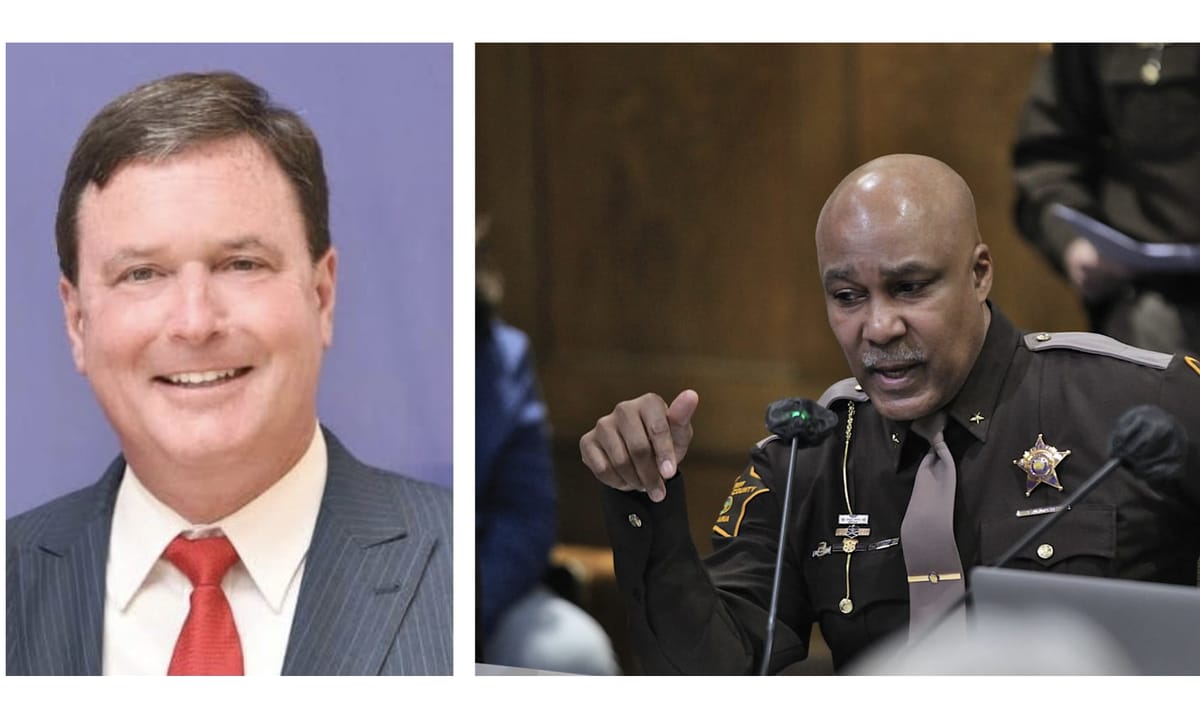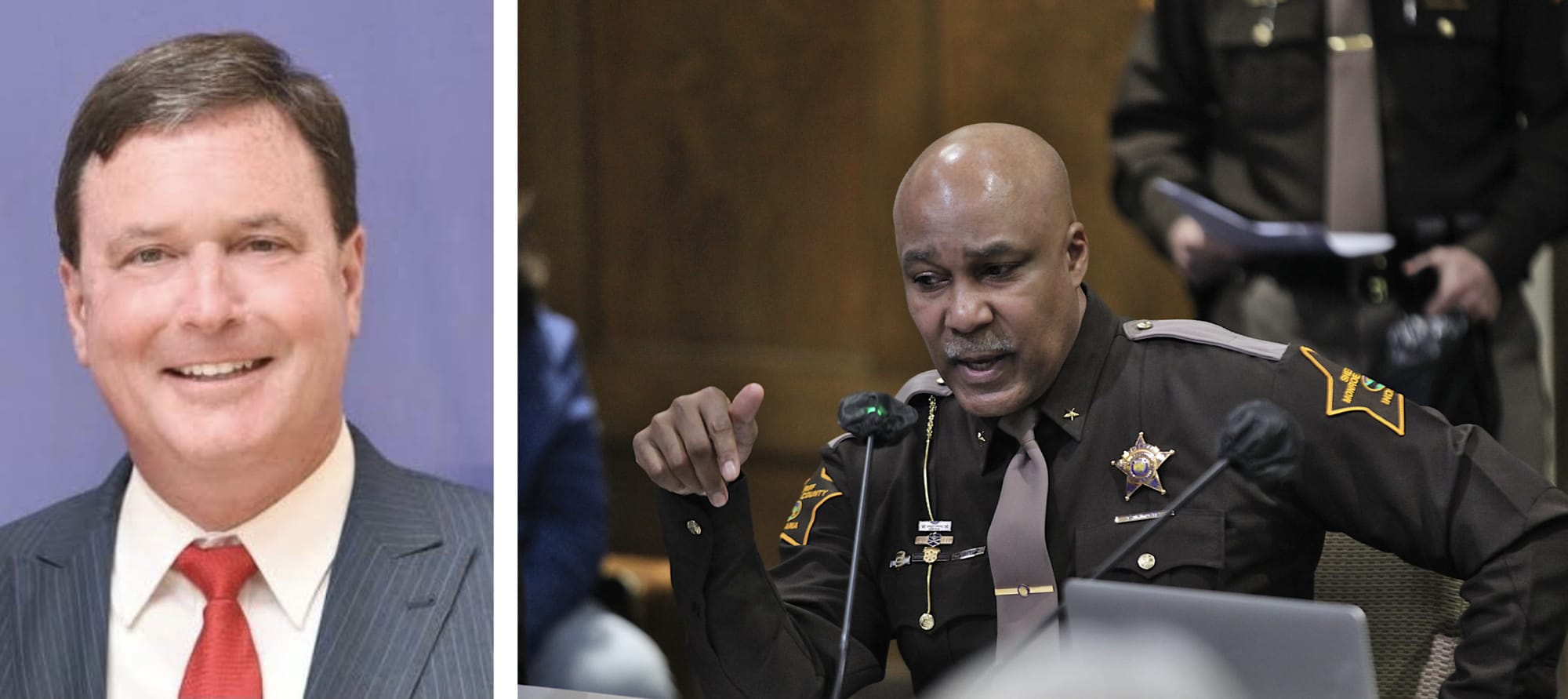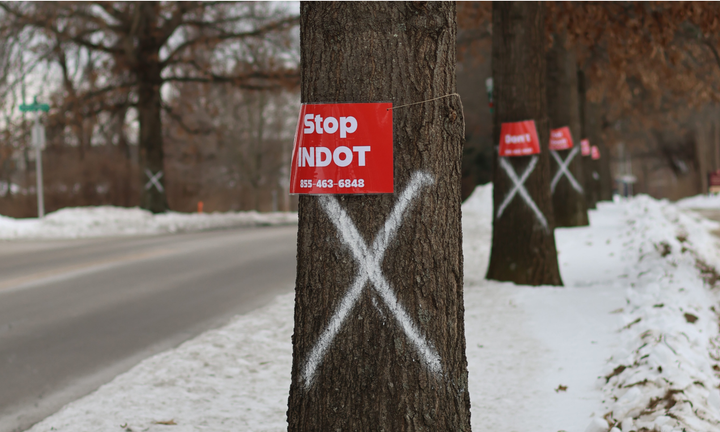Judge rejects Monroe County sheriff’s motion to dismiss AG’s lawsuit over immigration enforcement
After a ruling against Monroe County sheriff Ruben Marté, Indiana attorney general (AG) Todd Rokita’s lawsuit against the sheriff is still pending. Special judge Lucas Rudisill denied Marté’s motion to dismiss the AG’s lawsuit over the sheriff’s local policy on enforcement of immigration laws.


After a Wednesday ruling against Monroe County sheriff Ruben Marté, Indiana attorney general (AG) Todd Rokita’s lawsuit against the sheriff is still pending.
Special judge Lucas Rudisill denied Marté’s motion to dismiss the AG’s lawsuit over the sheriff’s local policy on enforcement of immigration laws.
Rudisill found that Rokita might conceivably be right—if every aspect of the AG’s complaint is analyzed in a way most favorable to the AG, and all reasonable inferences are made in the AG’s favor. That’s the legal standard judges are supposed to follow when considering a motion to dismiss.
The lawsuit focuses on the sheriff’s policy [MCSO 12] that establishes guidelines for the way that sheriff’s office employees address immigration or citizenship status of suspects, witnesses, and victims, among others with whom the sheriff’s office has contact.
The AG contends that the sheriff’s policy violates two sections of a state law. Section 3 of the law is about impermissible restrictions on communicating or cooperating with federal officials. Section 4 is about impermissible limitations on the enforcement of federal immigration laws to less than the full extent permitted by federal law.
The AG’s lawsuit effectively says that the sheriff’s policy restricts employees from cooperating with federal officials and enforcing immigration laws, in a way that state law forbids.
Rudisill’s ruling says that “it is not apparent that Plaintiffs [Rokita’s] Amended Complaint is incapable of producing some injunctive relief not only with respect to … Section 4 of Indiana Code 5-2-18.2, but also with respect to … Section 3 of Indiana Code 5-2-18.2.”
Before Wednesday’s ruling, the most recent activity in the lawsuit, which stretches back July 11 last year, was a filing by the sheriff with a revised policy that incorporates a requirement of a new state law.
Part of Marté’s defense against the complaint is a portion of his policy [MCSO-012], which in some respects repeats Section 3 of the state law.
From Section 3 of the state law:
IC 5-2-18.2-3 Prohibited from enacting or implementing restrictions on taking certain actions regarding information of citizenship or immigration status
Sec. 3. A governmental body or a postsecondary educational institution may not enact or implement an ordinance, a resolution, a rule, or a policy that prohibits or in any way restricts another governmental body or employee of a postsecondary educational institution, including a law enforcement officer, a state or local official, or a state or local government employee, from taking the following actions with regard to information of the citizenship or immigration status, lawful or unlawful, of an individual:
(1) Communicating or cooperating with federal officials.
(2) Sending to or receiving information from the United States Department of Homeland Security.
(3) Maintaining information.
(4) Exchanging information with another federal, state, or local government entity.
Here's how the state law compares to MCSO-012:
IV. Procedure …
C. In accordance with the requirements and provisions of Indiana Code 5-2-18.2-3, members of the MSCO will not prohibit, or in any way restrict, any other member from doing any of the following regarding the citizenship or immigration status, lawful or unlawful, of any individual:
1. Communicating or cooperating with federal officials.
2. Sending to or receiving information from the United States Department of Homeland Security.
3. Maintaining information.
4. Exchanging information with another federal, state, or local government entity.
But the AG contends that the sheriff’s policy cannot be made to conform with the state law just by reciting much of the wording of the law as a part of the policy—if other parts of the policy contradict it.
What are the other parts of the sheriff’s policy, which contradict state law, according to Rokita? Among other points in the AG’s complaint, Rokita says that it’s a violation of both Section 3 and Section 4 of state law for the policy to state that the sheriff’s employees “will not request or attempt to ascertain (i.e. run) immigration or citizenship status of an individual that they encounter related to their official duties for the Department, unless required to do so in the execution of their official duties.”
About that part of the policy, the AG’s complaint says: “By its terms, this provision prohibits MCSO employees both from affirmatively attempting to ascertain the immigration or citizenship status of an individual on their own initiative and from doing so in response to a request from federal officials.”
Many of the arguments back and forth in the filings boil down to what previous precedents have to say about what it means to cooperate with federal officials. The sheriff’s position on the other parts of the policy includes the idea that the AG is misinterpreting Section 3, because it applies only to information about a suspect’s immigration status already in the possession of the sheriff’s office, not to assistance in collection of additional information.
Wednesday’s ruling from Rudisill opens the door to the possibility that the lawsuit will now have a discovery phase, where evidence is collected and depositions of witnesses are conducted. Rudisill’s order notes that the AG has taken the position in past filings that discovery should be conducted. Rudisill says in his Wednesday order that the AG should make a filing with the court laying out the arguments for the need to conduct discovery, if that’s still his position.




Comments ()